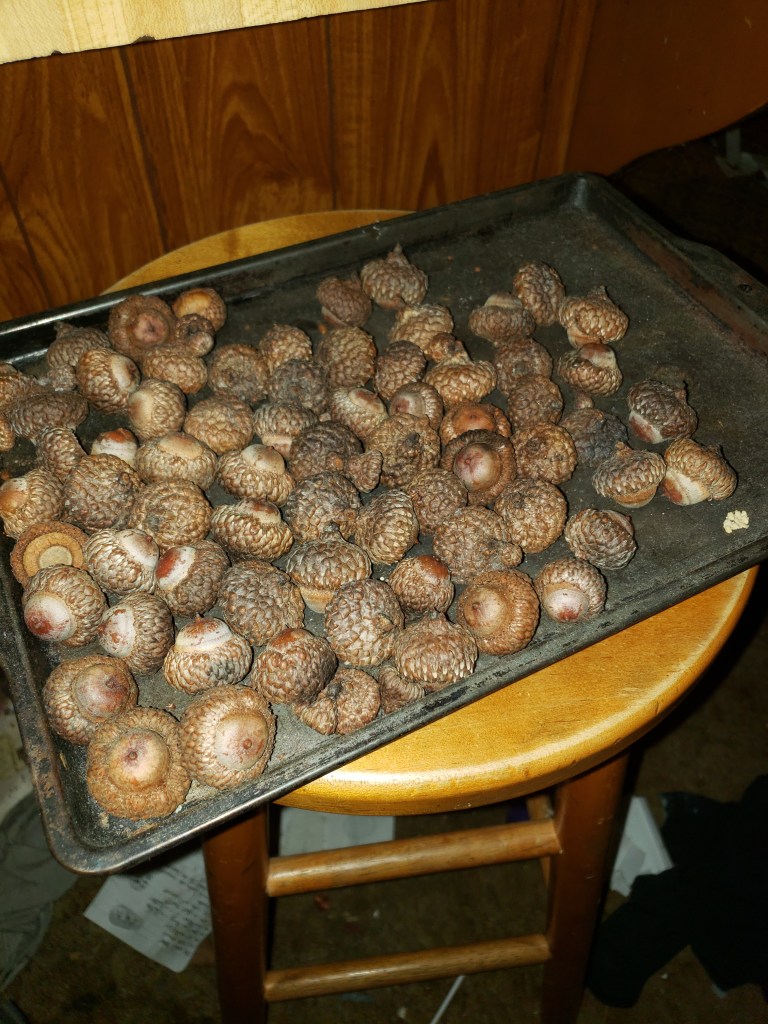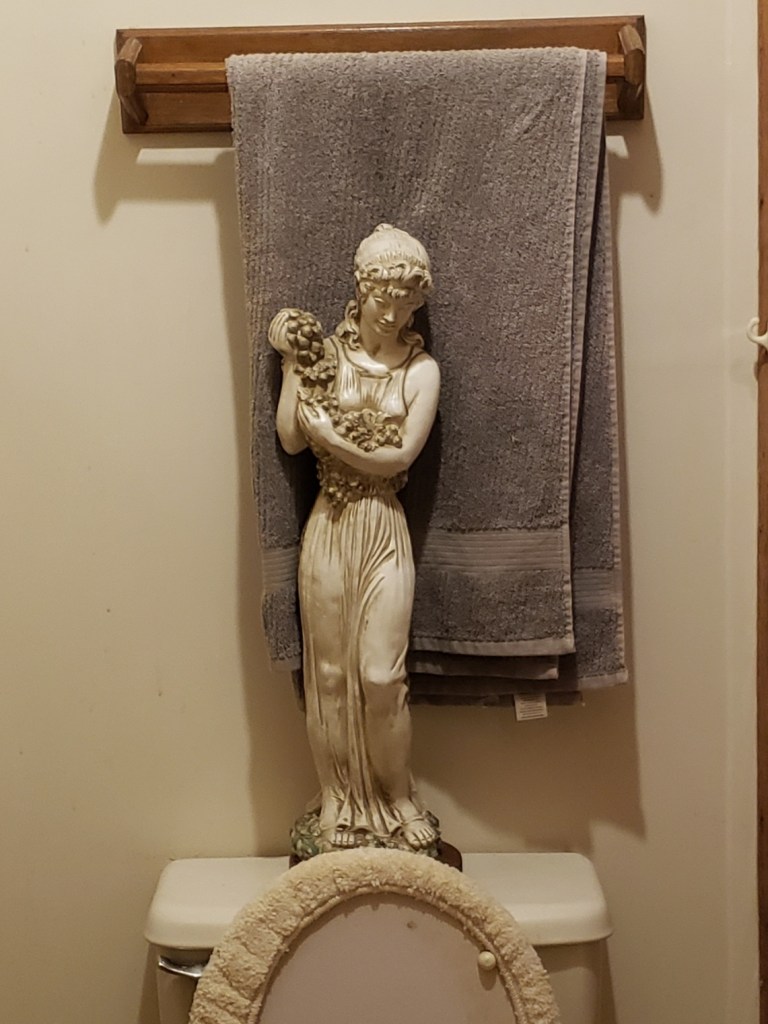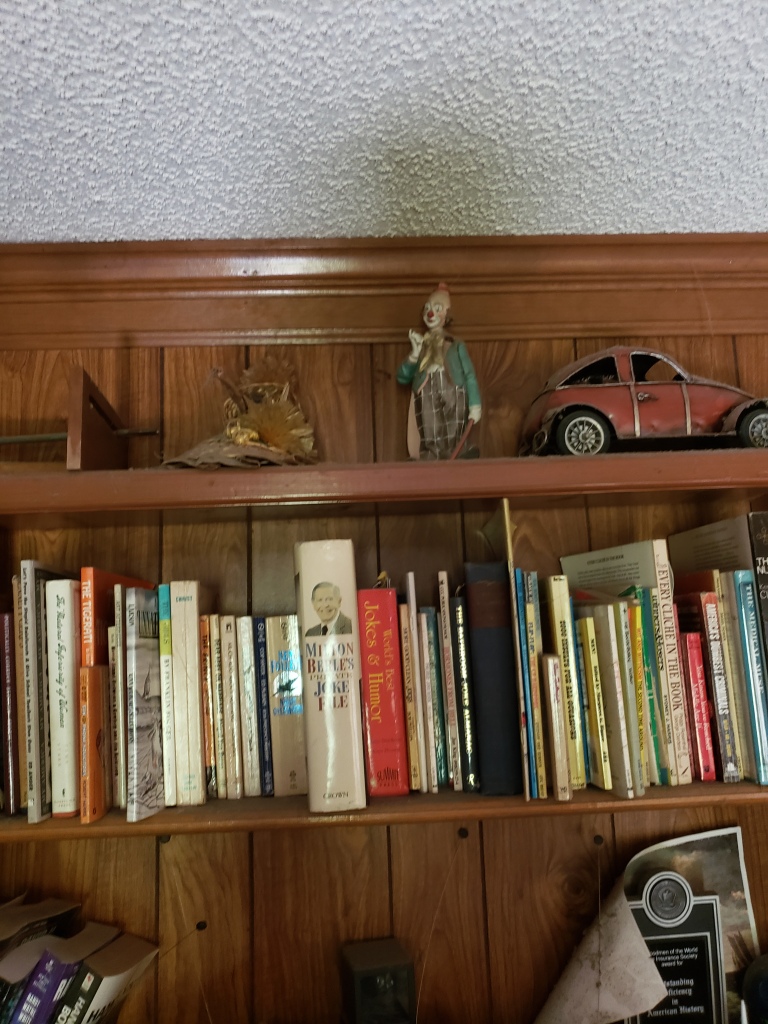content warnings: self-harm, suicide, general sickness and medical issues
A weird realization I’ve had after spending a lot of my time this week in the hospital: one of the things I miss is clutter. My home is full of clutter, something I’ve generally felt pretty bad about. Little piles of papers, a box of Magic cards, a notecard cut up into tiny squares for some reason, the spices I use most frequently scattered on the counter, Animal Crossing device controllers, books, my clean laundry occupying half the bed. I often think that I should reorganize for a less clutter-filled life.
But that comfortable clutter represents my actual life. Not the cleared countertops and put-away clothing and boxes tucked away that guests experience, but my real life strewn about, in easy reach, representing the things I love. Marie Kondo would understand; these things bring me joy.
It’s complicated, though, and, if I’m trying to be easier on myself about the clutter, I’m also highly aware of how clutter can come to represent something much more problematic. I’ve spent too much time at my dad’s house these past few months to be able to think about clutter without worrying over my future in cluttered living. His house is more like something you’d see on TV on a reality show, the sort of place that would give Kondo pause. His bedroom is just piled with clothes on the bed and in the wardrobe and closet; he must have been sleeping only on the couch and in his truck for years. There is literally a pathway wending through the downstairs area. Stacks of boxes teeter, piles of drafts and papers looming on all sides. Machines, more boxes, an actual motorcycle. It’s– troubling.

But here in the hospital, I’m learning to think about Aristotle’s golden mean with more understanding. The clear, empty floors make me long for my floors, lined with my kiddo’s toys, my running shoes, and all of my yoga equipment. The glistening counters make me think of the coffee cup I left out four days ago and how much joy it brings me just to see it there, even when I haven’t tidied it. Everything is white and gray gray gray, and my vibrant clutter seems much more appealing in comparison.
My cortisone levels were surging when we first got here; my offspring’s emergency surgery, a lingering infection, and a litany of mini crises will do that. Today, on day six, I’ve been thinking of my dad. It doesn’t help that my sweet child here looks just like him. And I’m thinking of my father’s last days in a hospital, not this one, but certainly similar in feeling. Did he long for his vibrant clutter? Did he think of some particular tottering pile of papers and think, gosh, I hope it doesn’t fall over. I’ll lose the order of the pages.
He asked the doctors to kill him in the end. That’s what he always told me he’d do; well, he told me that he’d do it himself if he were dying. “I’ll shoot myself in the head,” he told me once when I was maybe 20.
But he didn’t. He died alone in a hospital room, probably not one dissimilar to this one, where I’m sitting now beside my suffering child.
Here’s the truth though. When I first thought of my dad this morning, I wasn’t thinking of him at the end, in a hospital bed refusing to be intubated. I thought about him when I went down the hallway to cry by myself for a while and tried to remember something that would make me feel better. When I was younger and worried or scared, my go-to image was of my dad. He always sent me flowers on my birthday, and I bought him socks for his birthday every year. Thinking of him and the flowers he always remembered to send and the socks he always immediately started wearing were thoughts that, once upon a time, made me feel better.
Last time I was at his house, I found an open bag of socks, just like the kind I used to send him, and they looked old enough to be those. And I can understand how comforting clutter can become immoblizing clutter, the kind of clutter that feels impossible to remove or even to want to remove.
And it’s not even a metaphor: home clutter reflects brain clutter. My dad’s house is full of fascinating clutter, from chess sets and notebooks full of scribbled poetry to horrifying porcelain clowns and indecipherable machines. It’s full of puzzling clutter: an entire pot full of keys, a pan scattered with acorns, notes stuffed into pill botttles. Then there are the other kinds… the shattered glass on the porch, the hundreds of empty cat food cans, the piles of mail weighing down the table. I understand, not academically, not intellectually, but visercerally, how one gets there.
I’ll conclude by adding another complication here, this one via Michel Serres and the concept of “noise.” Serres’s noise is a complex concept, and for now I’ll just say that he describes noise as being any unintended texts that are mixed up with a message. That is, in writing this essay, I intend a particular message, which I’ll post on my blog. When you, dear reader, encounter my blog, you also have to accept the noise that includes ads on this webpage, language differences between me and you, the constraints of the medium itself, and a plethora of other possible things. Sometimes, the noise and the message are inextricable to the reader. Communication is only possible because of noise, but noise also makes it impossible for the rhetor and audience to perceive the same message.
Clutter is a physical version of noise (which Serres also calls the parasite). As a person, I mediate the world through material possessions, and my existence is only possible because of them. This clutter both contributes to my existence and makes it more challenging for me to decipher physical signals in the world. The answer is not to eliminate noise or clutter (one can’t), but also to recognize the generative qualities of noise/clutter. Change and possibility emerge from dynamic spaces, and clutter/noise is an aspect of that dynamism.
Eventually, I’ll cultivate this thinking further, and see how it aligns with the work I’m doing around the philosophy of hope. For now, I’ll sit in an uncluttered space and dream of chaos.

